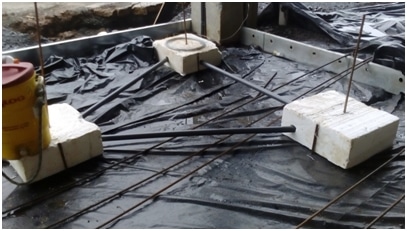
Read what he has to tell you about his experience as an engineer working on construction projects…
Introduction
A construction project can become problematic for a lot of reasons. For example, having an ambiguous requirement list from the Client for what they want in the final product could span a lot of possible solutions that may not necessarily satisfy the Client during the construction process, causing the schedule to be pushed.
Another example would be when the scope of work agreed upon the general contractor with subcontractors (electrical, plumbing, air conditioning, finishing, others) has a lot of leeway, prompting minor issues to sprout over the time until it becomes a big issue.
The focus of this post is to talk about the importance of effective communication during an ongoing construction project. This issue is very important for the engineers working in the construction industry, especially engineers related to MEP, because it could mean delay on their contribution to the project.
Electrical Construction Project: issue
For an electrical subcontractor participating in a construction project, many of the project deliverables relies heavily on whether the civil work is appropriate enough to start major electric installations. This is especially true for the grounding system which requires the approval of the civil engineer to manipulate the earth in a way that affects the least the schedule of the civil works. Additionally, depending on the design drawings for the MEP field, electric works would start after fire protection, plumbing, and air conditioning systems.
Engineers from different fields of expertise won’t have enough time to keep track on every single installation from other fields out of their expertise needed for the project because their hands are already full with overseeing the purchase order, arrival of equipments and materials, ensuring that their respective workers are doing what is needed to do, and so on and so forth. Thus it rests on each engineer the responsibility to remind the other parties of what work they need to do on the areas the construction project is tackling.
For example, I have been on a case where the civil engineer poured concrete to make a slab on earth without the electric pipes and electric floor boxes indicated in the drawing for the electrical system. This issue was spawned due to schedule pressure from the owner and lack of knowledge of what works needed to be done in said slab.
Even if parties related to the work needed to be done on a certain area communicated their intention, without a proper mean of evidence that establishes that all related parties know beforehand said installations, information could be lost on the way.
Electrical Construction Project: solution
“Effective Communication is the Key for a Successful Construction Project”
Indeed, the best solution for the issue would depend on the condition of workflow for each project. It is recommended to have weekly meetings with all the subcontractors and the general contractor to oversee the works schedule for the upcoming week, preventing installation conflict between them. If the project is very complex, it may deem necessary to hold two weekly meetings.
Additional to the meetings with all the subcontractors, it is necessary to have meetings with the parties related closely to the field the engineer is in charge of, i.e. general contractor MEP department with electrical subcontractor, to match up criteria on how the upcoming work is going to be done.
However, scheduling a lot of weekly meetings is not very productive because it consumes the production time the engineers could have used to further contribute in the construction project. Therefore, a clear chart on how the effective communication should flow between parties must be established for a proper, harmonious workplace. One thing to note is the importance to have written evidence of what was talked during the meetings and what things were agreed upon in case any issue pops up in the future.

Figure 1. Grounding delta installation inside the perimeter that would soon be poured with concrete to make a slab on earth. With proper coordination, there was no issue with the related parties and concrete could be poured over the determined area.
Thanks for reading,
Will.
What are your thoughts on the matter? Do you have any experience related to this matter that you would like to share with us? Please let us know in the comment section!